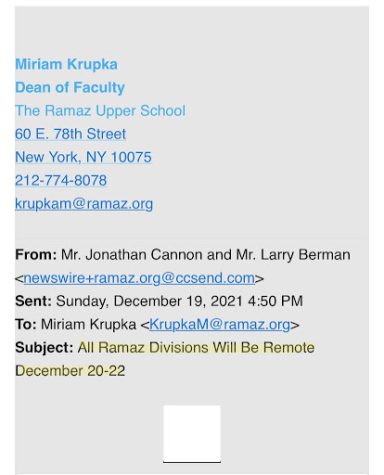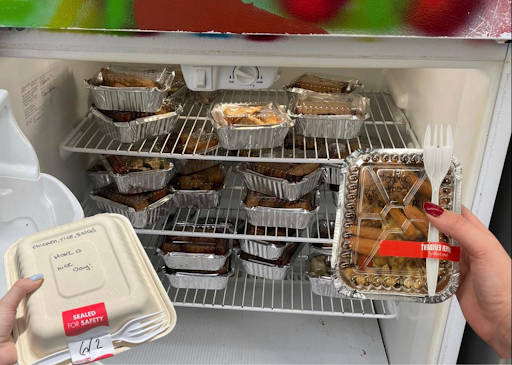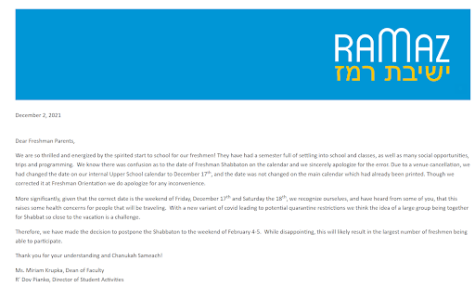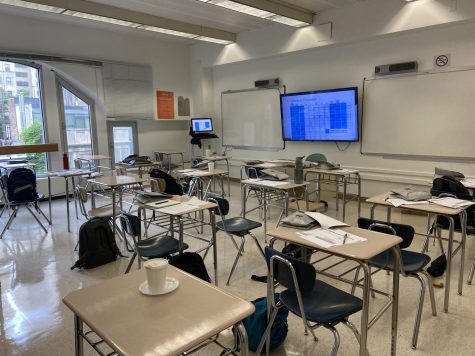Online Testing Amidst Coronavirus Social Distancing

Due to this COVID-19 pandemic, Ramaz is just one of the many schools to shut down in response to the outbreak and administer classes online. Despite the sudden halt to our regular lives, school must continue. For many schools, that means maintaining a regular test schedule. Ramaz in particular takes great pride in its rigorous curriculum, and having online tests even in the midst of a global pandemic reflect Ramaz’s value of education. The students and administration are trying to find a system that satisfies both students and teachers.
To get a better sense of this new system, who better to ask than those affected most, the students. Whether it’s because they have too much work at home and are already overwhelmed with their classes or because they dislike the way the tests are being administered, the majority of students, especially in the junior grade, oppose this system. Batya Levy ’21 believes that “the online testing is difficult because we [the students] have grown to be dependent on our teachers to be in the room to take any questions we may have.” Ralph Nakash ’21 says, “I personally think that the online testing is a bad idea, having to focus on the Zoom session during the test is extremely hard. The classes aside from the tests are very long, and because of this, we aren’t able to focus well. Therefore it’s much harder taking the tests online.” Both agree that taking the tests online is much more difficult than when we are at school with our teachers. Ziv Bolton ’22 says, “I think it works better when the teacher makes the tests open-note examinations.” Open-note testing seems like a positive alternative, but the environment takes a toll on how one does as well. This process is all very new to our school, and administrators are trying to find the best way to make it work for students to test how well each student is retaining the online curriculum. Rabbi Slomnicki said, “This is all very new to us. Departments and teachers are all experimenting with what can work given the circumstances. We all recognize that some experiments are successful and some aren’t. More time will allow us to try new techniques and see which ones work best for each department.”
Just as students are adjusting to learning online and taking tests online, teachers are also attempting to help students to still learn efficiently and be tested comfortably from home. Dr. Herzog said about her test,“Overall, I believe that the history exam went well. There were many students pleased that they were able to type up their exams instead of writing their answers by hand; however, many students did not like the timer on the exam. I think in the future we can tweak test-taking online, but this is definitely a useful alternative method to administer exams.” Dr. Bernstein, who also administered a test online, tried his best to adjust the test, given the circumstances. Dr. Bernstein said, “I decided to abandon multiple-choice and DBQ prompts and instead use short answer questions that require more detail [because the exam was open notes]. In terms of whether this test lowered or raised students’ grades, he said that the “difference is not substantial.”
The administration in response is trying their best to accommodate most of the students’ complaints by taking surveys and asking for feedback. Many students are comparing Ramaz’s system to other schools’ pass/fail test system or no testing at all while at home. This will take some time adjusting for students and for teachers. The administration is testing the waters and will continue to do so until they find a system that resonates well with students and spurs the most positive feedback.

















